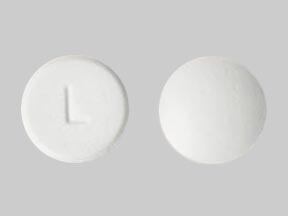Miconazole Disease Interactions
There are 2 disease interactions with miconazole.
Miconazole (applies to miconazole) liver disease
Moderate Potential Hazard, Moderate plausibility.
The use of miconazole in patients with liver disease has not been adequately studied, although it is known that miconazole is primarily metabolized by the liver. Therapy with miconazole should be administered cautiously in patients with liver disease, and the dosing adjusted or discontinued according to clinical response.
Miconazole (applies to miconazole) hyperlipidemia
Minor Potential Hazard, Moderate plausibility.
Elevations in cholesterol and triglyceride levels may occur in patients receiving intravenous miconazole and are attributed to the drug vehicle, Cremophor EL (polyethoxylated castor oil). These increases are reversible upon discontinuation of miconazole therapy. Clinicians should be cognizant of these effects when interpreting lab results of hyperlipidemic patients during treatment with miconazole.
Miconazole drug interactions
There are 297 drug interactions with miconazole.
Miconazole alcohol/food interactions
There is 1 alcohol/food interaction with miconazole.
More about miconazole
- miconazole consumer information
- Check interactions
- Compare alternatives
- Side effects
- Dosage information
- During pregnancy
- Support group
- Drug class: azole antifungals
- Breastfeeding
- En español
Related treatment guides
Drug Interaction Classification
| Highly clinically significant. Avoid combinations; the risk of the interaction outweighs the benefit. | |
| Moderately clinically significant. Usually avoid combinations; use it only under special circumstances. | |
| Minimally clinically significant. Minimize risk; assess risk and consider an alternative drug, take steps to circumvent the interaction risk and/or institute a monitoring plan. | |
| No interaction information available. |
Further information
Always consult your healthcare provider to ensure the information displayed on this page applies to your personal circumstances.


